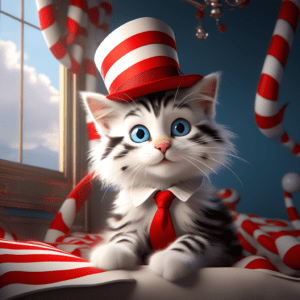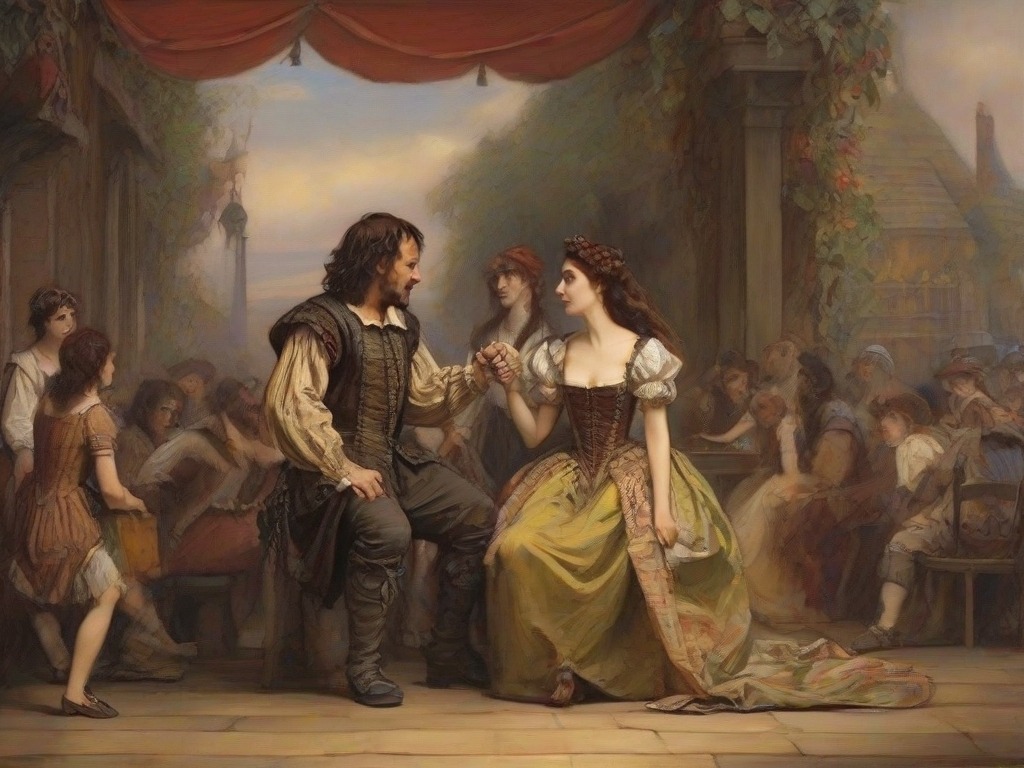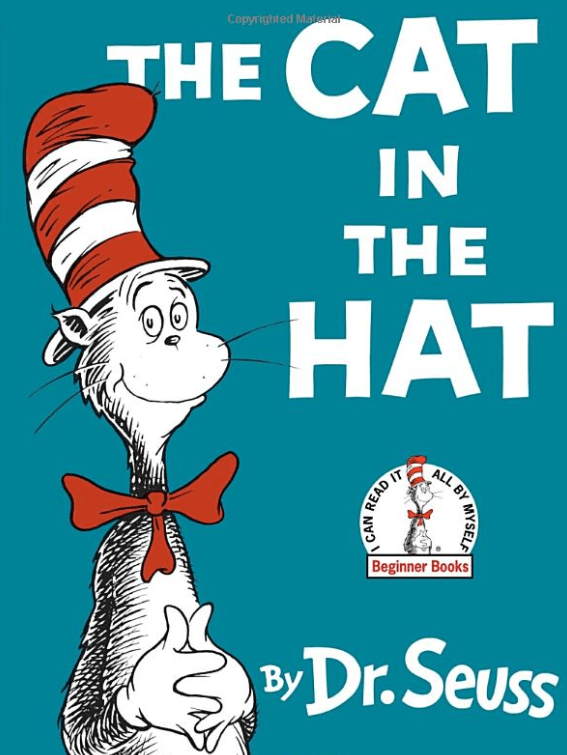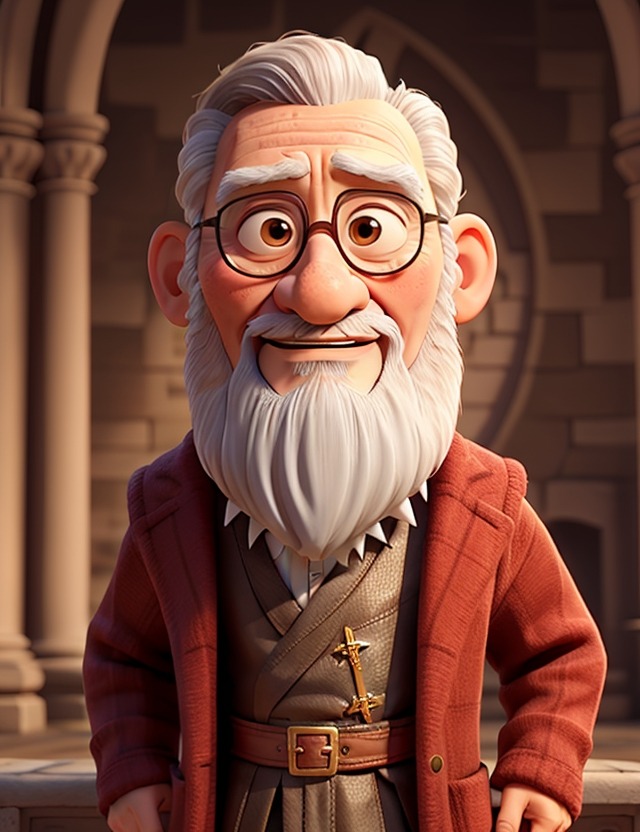The genre of funny/comedy short stories for kids is characterized by humorous and light-hearted narratives that aim to entertain young readers. It is a popular genre because it effectively appeals to children’s imagination, curiosity, and emotions.
Comedy short stories ignite children’s imagination by introducing them to wacky and unexpected situations that often defy reality. These stories often involve whimsical characters, peculiar settings, and humorous plot twists which encourage children to explore beyond the boundaries of their own experiences.
The main point of this article is to emphasize the significance of funny/comedy short stories for kids as a highly engaging genre that appeals to their imagination, curiosity, and emotions. By highlighting how these stories stretch their imagination, fuel their curiosity, and evoke positive emotions, the article aims to show that funny/comedy short stories play a vital role in the development and enjoyment of young readers.
Funny/Comedy Short Stories Genre: Examples
Best Comedy Stories of all Time
Funny Stories in English with Pictures
Funny/Comedy Short Stories Genre: Authors
Some famous authors of the funny/comedy genre include:
- Mark Twain: Mark Twain, also known as Samuel Clemens, was an American writer and humorist. He is considered one of the greatest American writers and his works contributed significantly to the development of humor in literature. Some of his notable works include “The Adventures of Tom Sawyer” and “Adventures of Huckleberry Finn”. Twain’s wit, satire, and humorous storytelling style have had a lasting influence on subsequent comedy writers.
- P.G. Wodehouse – Pelham Grenville Wodehouse, commonly known as P.G. Wodehouse, was an English author widely regarded as one of the greatest comic writers in the English language. He is famous for his Jeeves and Wooster novels and stories, featuring the witty butler Jeeves and his bumbling employer Bertie Wooster. Wodehouse’s clever wordplay, sharp characters, and absurd situations have made his works beloved by readers and a source of inspiration for many subsequent comedic writers.
- Douglas Adams – Douglas Adams was an English author known for his science fiction comedy series “The Hitchhiker’s Guide to the Galaxy”. Adams’ unique blend of satire, absurdity, and wit made him a popular and influential writer in the genre. His Hitchhiker’s Guide series, including several novels and a radio drama, introduced readers to a universe filled with humorous aliens, unique gadgets, and philosophical musings, captivating audiences worldwide.
- Terry Pratchett – Sir Terry Pratchett was a British author best known for his Discworld series, a satirical and comedic fantasy universe. Pratchett’s richly developed characters, clever wordplay, and humorous commentary on various aspects of society made him a cherished figure in the fantasy and comedy genres. Some of his notable works include “Guards! Guards!” and “Small Gods”. Pratchett’s influence is widespread, and many authors credit him with shaping the comedic fantasy genre.
These authors have contributed to the development and popularity of the funny/comedy genre by creating works that are not only humorous but also thought-provoking and intellectually stimulating. Their unique writing styles, use of satire, and ability to create memorable and relatable characters have inspired countless other writers to experiment with humor in their works. Furthermore, they have provided readers with laughter and entertainment, offering an escape from the mundane and creating a lasting impact on the genre and its readers.
Funny/Comedy Short Stories Genre : History
The genre of Funny/Comedy emerged in various forms throughout history, but its modern roots can be traced back to ancient times. Humor has always been an integral part of human culture, used to entertain, satirize, or provide relief from daily life. However, the specific genre of comedy as we know it today developed over time and was influenced by several historical, cultural, and social factors.
One of the earliest pioneers of comedy can be found in ancient Greek theater. Playwrights such as Aristophanes created works in the 5th and 4th centuries BCE that employed humor as a means of social and political commentary. These comedic plays often used satire to mock individuals, institutions, and societal norms.
During the Renaissance period, comedy underwent further development, with notable figures like William Shakespeare producing comedic plays that explored a range of themes and employed various comedic devices. Shakespeare’s works, such as “Twelfth Night” and “A Midsummer Night’s Dream,” showcased the use of witty wordplay, mistaken identities, and comedic misunderstandings.
In the 20th century, comedy expanded into different mediums, including film and television, thanks to advancements in technology. Silent comedy pioneers like Charlie Chaplin and Buster Keaton used physical humor to captivate audiences, while stand-up comedians such as George Carlin and Richard Pryor delivered observations and social critique through comedic performances.
As for landmark works and trends within the Funny/Comedy genre, it is challenging to pinpoint specific ones due to the vastness and fluidity of the genre. However, certain periods and specific works have left a lasting impact. For instance, the emergence of sitcoms in the mid-20th century, such as “I Love Lucy” and “The Honeymooners,” set the stage for the popularity of comedic storytelling on television.
In recent years, the growth of internet culture and social media has significantly influenced the Funny/Comedy genre. Memes, viral videos, and online communities have changed the dynamics of comedic expression, with comedians like Key and Peele, Amy Schumer, and Kevin Hart using social media platforms to reach larger audiences.
Overall, the genre of Funny/Comedy has evolved through centuries, always reflecting the social, cultural, and historical contexts of its time. From ancient Greek satire to modern online comedy, the genre continues to adapt and find new ways to entertain and connect with audiences.
Funny/Comedy Short Stories Genre: Characteristics
The key characteristics of the genre of comedy or funny literature are humor, wit, and amusement. This genre aims to entertain and provoke laughter from readers by presenting humorous situations, absurd or comical characters, and witty dialogue.
- Language: comedy literature often employs wordplay, puns, satire, and comedic timing to create a humorous effect. The plot typically revolves around comedic situations, misunderstandings, or comedic conflicts that lead to humorous resolutions.
- Characters: in comedy literature can be exaggerated, eccentric, or carry humorous traits. They often find themselves in comical predicaments or engage in humorous interactions with other characters.
- Setting: of comedy literature can vary, from everyday situations to absurd or fantastical worlds. However, regardless of the setting, the comedic element is emphasized through the situations and events that take place.
- Tone: of comedy literature is lighthearted, humorous, and often silly. It aims to bring joy, laughter, and amusement to the reader.
- Typical themes: in comedy literature include silliness, escapism, social satire, and the exploration of human flaws and foibles. Topics can range from everyday life and relationships to humorous takes on specific professions or social situations.
The messages of comedy literature often revolve around the universal appeal of laughter, the importance of not taking oneself too seriously, and finding humor in the absurdities and ironies of life.
Comedy literature is particularly relatable and engaging for kids due to their innate sense of humor and curiosity for the absurd. It assists in fostering a love for reading and storytelling, while also providing a release from reality and a chance to enjoy playful language and imaginative scenarios. Additionally, comedy literature can infuse learning moments and teach children valuable life lessons through humor.
Funny/Comedy Short Stories Genre: Benefits
Reading the genre of funny/comedy can greatly benefit kids in several ways. Here are some ways it enhances their reading comprehension, vocabulary, and critical thinking skills:
- Engaging storytelling: Funny and comedic books often capture children’s attention and keep them hooked. This encourages kids to read for longer durations, improving their reading comprehension as they delve into the plot and follow the storyline.
- Contextual understanding: Comedic stories often rely on puns, wordplay, and situational humor, which introduces children to new and creative use of language. By encountering witty dialogue or clever jokes, kids expand their vocabulary and develop an understanding of different forms of humor.
- Interpreting humor: Comedy requires the reader to understand and interpret jokes, sarcasm, and irony. This enhances critical thinking skills as children learn to identify and analyze humorous elements within the story.
- Character development: Funny books often feature unique and relatable characters. As kids observe the development of these characters, they gain insight into human behavior, emotions, and relationships, fostering empathy and enhancing their understanding of complex character dynamics.
In addition to improving reading skills, the genre of funny/comedy broadens kids’ horizons, enriches their culture, and fosters their creativity in the following ways:
- Exposure to diverse humor: Funny books expose children to different types of humor from various cultures and backgrounds. This broadens their understanding of different comedic styles, perspectives, and cultural references.
- Cultural appreciation: Funny books can incorporate humor specific to different cultures, introducing children to diverse traditions, customs, and ways of life. Through humor, kids gain appreciation and respect for other cultures, helping them develop a global mindset.
- Thinking outside the box: Comedy often challenges conventional thinking, encouraging creativity and imagination. By engaging with humorous stories, children are inspired to think creatively, develop innovative ideas, and explore new perspectives.
- Motivational and empowering: Funny books often feature characters who overcome obstacles, use their wit, and navigate through challenging situations. These stories can motivate and empower children, showing them the power of resilience, problem-solving, and perseverance, ultimately inspiring them to pursue their goals and dreams.
Funny/Comedy Short Stories Genre: Tips
Reading
1. Start with light-hearted and humorous books or short stories to get acquainted with the genre. Look for authors known for their humor, such as Mark Twain, P.G. Wodehouse, or Douglas Adams.
2. Pay attention to the comedic elements within the story, such as witty dialogue, irony, or absurd situations. Identify how these elements contribute to the overall humor.
3. Practice identifying different types of comedy, such as satire, slapstick, or dark humor. By understanding the different styles, you can appreciate various comedic approaches.
4. Engage in discussions or join reading groups focused on comedic literature. This will allow you to explore different perspectives and interpretations of humor.
5. Be open to exploring various subgenres within comedy, such as parody, romantic comedy, or black comedy. Each subgenre offers unique comedic aspects and can help broaden your understanding of the genre.
Writing
1. Pay attention to comedic timing and pacing in your writing. Consider the rhythm of your sentences and the delivery of jokes or humorous situations.
2. Develop a strong sense of humor by exposing yourself to various comedic forms, such as stand-up comedy, sitcoms, or comedic plays. Analyze what makes these forms successful and incorporate those elements into your writing.
3. Experiment with different comedic techniques like wordplay, puns, or comedic juxtaposition to add humor to your writing.
4. Create relatable and well-rounded characters that can engage readers through their witty dialogue or humorous actions.
5. Seek feedback from peers, writing groups, or professionals experienced in comedic writing. Constructive criticism can help you identify areas for improvement and further refine your comedic style.
Teaching
1. Incorporate humor into your teaching materials, activities, or lesson plans. Use funny anecdotes, jokes, or humorous examples to engage and entertain students.
2. Share comedic literature excerpts with your students and discuss the comedic techniques used. Encourage them to identify the humorous elements and explain why they find them funny.
3. Organize group activities that involve writing or performing comedy sketches, jokes, or satirical pieces. This allows students to actively engage with the genre and practice their comedic skills.
4. Use comedy as a tool to facilitate critical thinking and analysis. Encourage students to dissect comedic works, identifying the underlying social commentary or the techniques used to evoke laughter.
5. Provide a supportive and inclusive environment for students to explore their own sense of humor. Encourage them to experiment with various comedic styles while respecting boundaries and promoting positive humor.
By embracing the genre of funny/comedy, you can foster a love for laughter, creativity, and critical thinking among your students. Remember to approach teaching with enthusiasm and maintain a light-hearted atmosphere to effectively engage, challenge, and support them.



